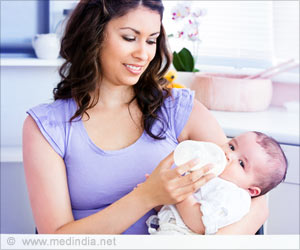Highlights
- Some spoon-fed babies who are being forced to overeat by their parents tend to become overweight or obese.
- Almost 20% of the spoon-fed babies were overweight by the time they were two, compared with just eight percent of self-fed babies.
- Babies allowed to feed themselves stopped eating when they became full, meaning they were less likely to overeat.
This led to an average difference in weight between the two groups of 2lbs, independent of other factors like birth weight, weaning age, breastfeeding and mother’s background.
Professor Brown suggests babies allowed to feed themselves stopped eating when they became full, meaning they were less likely to overeat.
The study also found that babies allowed a range of solid foods from the age of six months – a process known as “baby-led weaning” – were often trim, healthy and adventurous eaters. In contrast, she said parents could be overfeeding their babies by making them finish a meal, despite them rejecting the food.
Professor Brown, an associate professor at Swansea University, said: “Let them eat as little as they want. A jar of baby food is too big for what a little baby needs. “When you are waving the spoon around and saying ‘here comes the big aeroplane – let’s finish it’, if they clamp their mouth shut, forget about it. They will not starve.”
Let Your Baby Feed Themselves
In the early 2000s, the Department of Health released advice suggesting that babies should be fed a mixture of purees and finger foods from the age of six months.
That advice remains today, with current NHS weaning guidelines suggesting babies should be offered soft finger foods that they can feed to themselves, alongside spoon-fed purees from six months old.
Finger foods can include mashed or soft cooked fruit and vegetables. Parents can then introduce more advanced foods later, including small pieces of meat and rice.
A statement on the NHS website explained: “It’s a really important step in their development and it can be great fun to explore new flavors and textures together. Babies don’t need three meals a day to start with – so you can begin by offering foods at a time that suits you both.”
Source-Medindia










